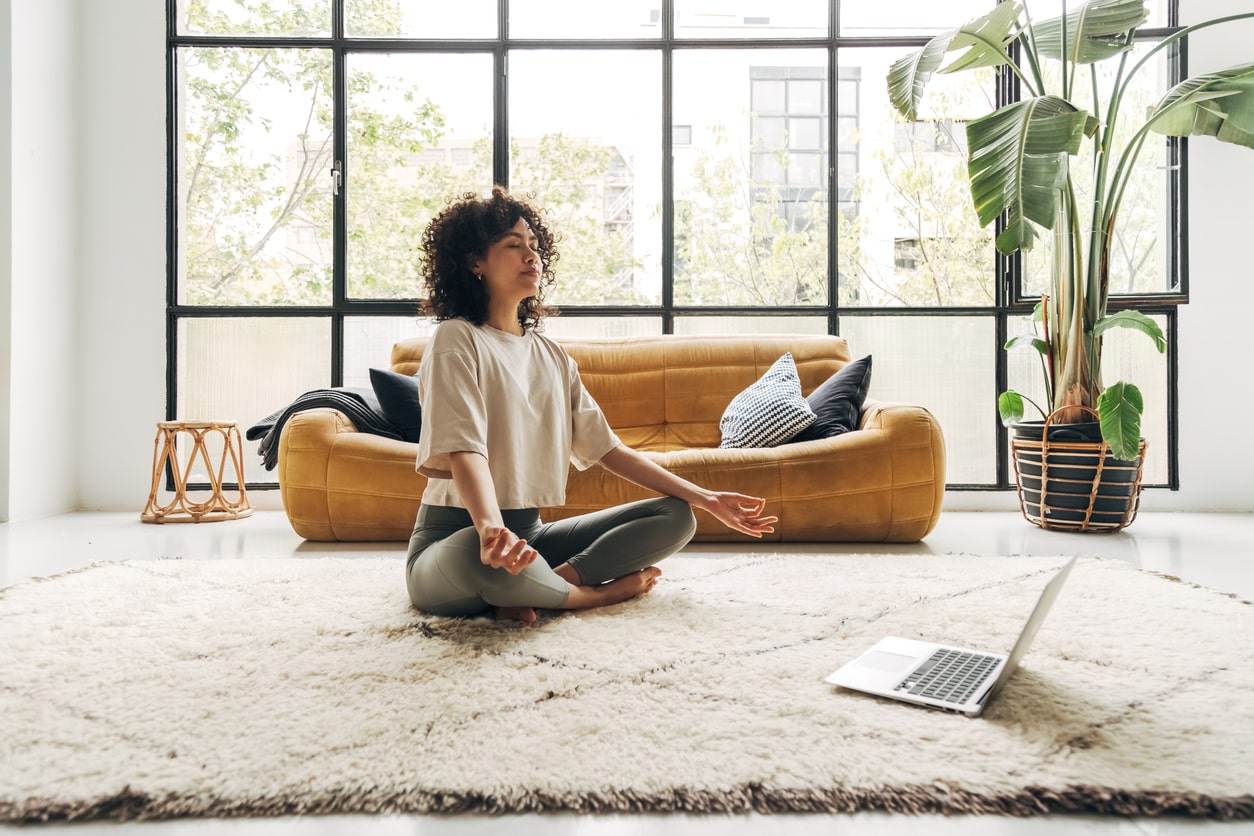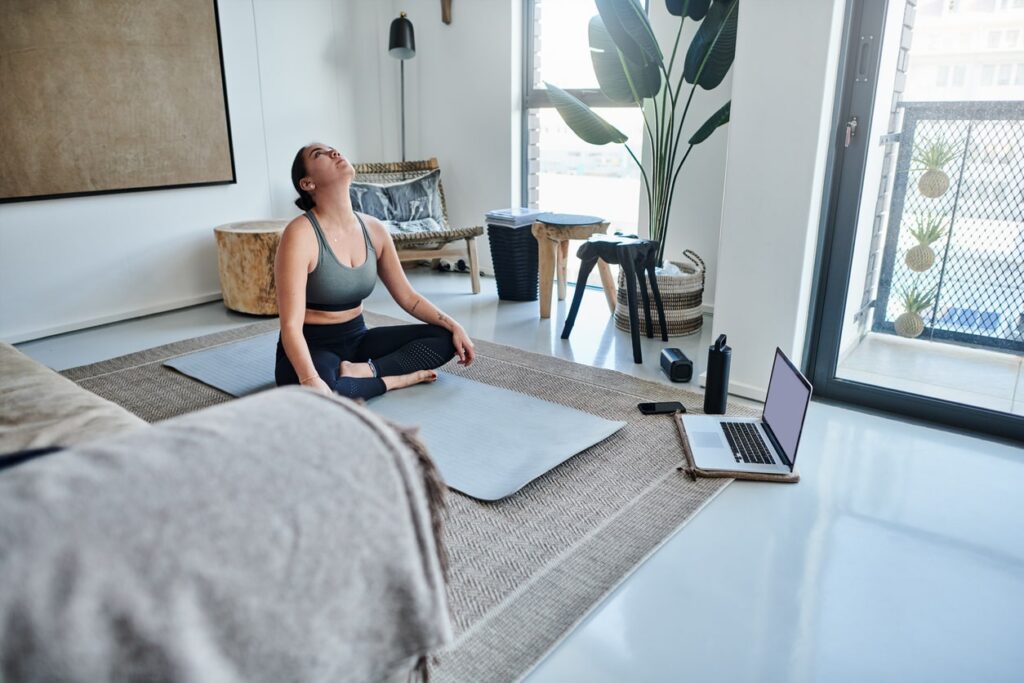Now Reading: Mindfulness Meditation for Anxiety: A Path to Inner Peace
-
01
Mindfulness Meditation for Anxiety: A Path to Inner Peace
Mindfulness Meditation for Anxiety: A Path to Inner Peace

Introduction
Anxiety affects millions of people worldwide, disrupting daily life and causing overwhelming stress. While therapy and medication can be helpful, mindfulness meditation for anxiety has emerged as a powerful tool for managing stress and promoting emotional well-being. This practice helps individuals stay present, reduce negative thoughts, and develop resilience against anxiety triggers.
In this article, we will explore how mindfulness meditation for anxiety works, its benefits, and practical techniques to integrate it into daily life.
What is Mindfulness Meditation?
Mindfulness meditation is a practice that encourages individuals to focus on the present moment without judgment. It involves:
- Observing thoughts and emotions without reacting.
- Cultivating awareness of breathing, bodily sensations, and surroundings.
- Letting go of distractions and reducing overthinking.
By engaging in mindfulness meditation, individuals train their minds to stay in the present, reducing the impact of anxious thoughts.
How Mindfulness Meditation Helps with Anxiety
1. Reduces Stress Hormones
- Studies show that mindfulness meditation lowers cortisol levels, the hormone responsible for stress.
- Regular practice promotes relaxation, helping to counteract the fight-or-flight response triggered by anxiety.
2. Improves Emotional Regulation
- Mindfulness meditation enhances self-awareness, helping individuals recognize anxious thoughts before they spiral out of control.
- Practicing mindfulness teaches the brain to respond calmly instead of reacting impulsively to stressors.
3. Promotes a Positive Mindset
- Anxiety often leads to negative thought patterns.
- Mindfulness meditation helps reframe negative thoughts into more balanced, rational perspectives.
4. Strengthens the Brain’s Resilience to Anxiety
- Neuroscientific studies indicate that mindfulness meditation increases gray matter in the brain, particularly in areas related to emotional control.
- This strengthens the ability to manage stress and prevents anxiety from taking over.
5. Enhances Focus and Reduces Overthinking
- Many people with anxiety struggle with excessive worrying and racing thoughts.
- Mindfulness meditation improves concentration and mental clarity, allowing individuals to focus on the present instead of dwelling on the past or future.
Simple Mindfulness Meditation Techniques for Anxiety
Here are some effective mindfulness techniques that can help alleviate anxiety:
1. Mindful Breathing
Focusing on your breath is one of the simplest and most effective mindfulness practices. How to practice:
- Find a quiet place and sit comfortably.
- Close your eyes and take a deep breath in through your nose.
- Slowly exhale through your mouth, focusing on the sensation of your breath.
- If your mind wanders, gently bring your attention back to your breath.
- Practice for 5–10 minutes daily.

2. Body Scan Meditation
This technique helps release physical tension and connect with the present moment. How to practice:
- Lie down or sit in a comfortable position.
- Close your eyes and take a few deep breaths.
- Slowly bring awareness to different parts of your body, starting from your toes and moving up to your head.
- Notice any tension and consciously relax each area.
- Continue for 10–15 minutes.
3. Grounding Exercise for Immediate Anxiety Relief
This technique is useful during moments of acute anxiety or panic attacks. How to practice:
- Use the 5-4-3-2-1 method:
- 5 things you can see.
- 4 things you can touch.
- 3 things you can hear.
- 2 things you can smell.
- 1 thing you can taste.
- This exercise shifts focus away from anxious thoughts and into the present moment.
4. Loving-Kindness Meditation (Metta Meditation)
This technique fosters compassion and emotional balance, which can help counteract anxiety. How to practice:
- Sit in a comfortable position and close your eyes.
- Take deep breaths and repeat positive affirmations, such as:
- “May I be happy.”
- “May I be peaceful.”
- “May I be free from stress.”
- Extend these wishes to loved ones and even to strangers.
- This practice reduces self-judgment and promotes emotional healing.
5. Mindful Walking
Walking meditation combines physical movement with mindfulness. How to practice:
- Walk slowly and focus on each step.
- Pay attention to the sensation of your feet touching the ground.
- Observe your surroundings—the sounds, smells, and sights.
- Breathe deeply and maintain a calm, steady pace.
Scientific Research Supporting Mindfulness Meditation for Anxiety
Numerous studies confirm the benefits of mindfulness meditation in reducing anxiety:
- Harvard Medical School (2018) found that an 8-week mindfulness program reduced anxiety symptoms by 58%.
- Johns Hopkins University (2014) reviewed 47 clinical trials and concluded that mindfulness meditation significantly reduces stress and improves overall mental health.
- American Psychological Association (2020) reported that mindfulness meditation helps with anxiety disorders, PTSD, and social anxiety.
How to Incorporate Mindfulness Meditation into Daily Life
- Start small: Begin with 5 minutes a day and gradually increase your practice.
- Use mindfulness apps: Apps like Headspace, Calm, and Insight Timer offer guided meditations for anxiety relief.
- Create a routine: Practice mindfulness before bed or in the morning to set a positive tone for the day.
- Combine with other self-care practices: Yoga, journaling, and gratitude exercises enhance the benefits of mindfulness.
- Be patient with yourself: It takes time to develop mindfulness skills, so be consistent and gentle in your practice.
Conclusion
Mindfulness meditation for anxiety is a powerful tool that helps individuals regain control over their thoughts, emotions, and stress levels. By incorporating simple mindfulness techniques into daily life, individuals can experience greater inner peace, reduced anxiety, and improved well-being.
If you are struggling with anxiety, consider making mindfulness meditation a part of your daily routine. With practice and consistency, it can transform your mental health and help you cultivate a calmer, more balanced life.
























